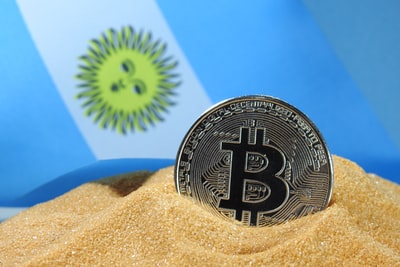What are Bitcoins?
Bitcoins were developed in 2009 as a virtual, digital currency by a person or group hiding behind the pseudonym Satoshi Nakamoto. Bitcoins are physically intangible, making them difficult for many people to understand.
Although Bitcoins were originally intended as a currency, more and more investors or speculators consider Bitcoin as an asset class of its own - a kind of "Gold 2.0". Why this is so: Bitcoins are "rare" much like gold. When all Bitcoins are mined, a maximum of 21 million coins exist.  Very few Bitcoin owners use Bitcoin as a means of payment, but as a kind of store of value, despite high fluctuations in value. In December 2017, futures contracts on Bitcoins were introduced for the first time. Bitcoins have thus finally attained the status of an asset class in their own right.
Very few Bitcoin owners use Bitcoin as a means of payment, but as a kind of store of value, despite high fluctuations in value. In December 2017, futures contracts on Bitcoins were introduced for the first time. Bitcoins have thus finally attained the status of an asset class in their own right.
What is special about blockchain technology?
Blockchain technology is a database that is owned by no one, so it is considered decentralized. No one, not even a state, company or individual, can manipulate the data contained in this database. A network of computers manages the blocks of the data chain (blockchain). Blocks are generated continuously - in the case of Bitcoin, approximately every ten minutes. All transactions of any kind are stored in these blocks.
The generation of blocks is like a competition in the network. Whoever is the first to validate transactions and solve a mathematical problem collects the transaction costs contained therein plus new coins. After a network participant finds a solution, it is verified by other participants and pinned to the chain. Blockchain technology is considered extremely tamper-proof and flexible.
Due to its special characteristics, this technology is predicted to have a rosy future, regardless of whether Bitcoins will become established or not.
The price of Bitcoins has exploded this year. Is the price performance a bubble?
Bitcoin's performance has indeed been breathtaking. Bitcoin's initial listing in 2010 was 6 cents in US$ ($0.06). Since then, the price has increased tenfold on average every year! This, of course, attracts many speculators. In 2017, the performance was even above the long-term average.
People have been talking about a bubble for a long time. Whether it is a bubble, you know unfortunately only when it has burst. After such a strong performance as we have seen in recent months, at least a correction is very likely. Nevertheless, even if the price halved, the long-term uptrend would still be intact.
What are the risks?
Bitcoins do not represent value per se. The value depends on whether and how many people recognize Bitcoins as an asset class and whether they ever find use as a means of payment. Currently, less than 1% of the world's population uses Bitcoins.
There are numerous risks:
- Bitcoins are volatile, Bitcoins have ten times the volatility of stocks.
- Interest in Bitcoins can disappear overnight.
- Another cryptocurrency can outperform Bitcoins.
- Regulatory risks: Bitcoins can be banned locally (in certain countries). A global ban, on the other hand, is not possible.
- Mining Bitcoins can become unattractive (not very profitable), which would cause the network to disintegrate.
- Bitcoin trading platforms are always targets of hacker attacks. and many more.
How to invest in Bitcoins?
You can buy Bitcoins through different ways. The direct way requires a wallet, a kind of electronic purse. After that, one acquires Bitcoins through an exchange or a Bitcoin ATM.
In addition, one can invest in certificates or in an ETF. For institutional investors, there are also futures contracts on the Chicago Mercantile Exchange since Dec. 17.
Does Erste AM also invest in bitcoins?
Erste AM is concerned with the topic and is closely monitoring the development.
Currently, Erste AM does not invest in Bitcoins yet.
Important legal information
Forecasts are not a reliable indicator of future developments.